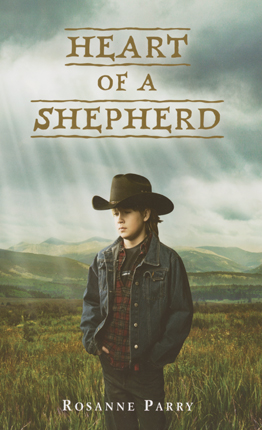Full Text Reviews: Booklist - 02/15/2009 Ranching and soldiering are what men do where Brother lives, in eastern Oregon. Trouble is, the nearly 12-year-old boy doesn’t think he’d be much good at either. But then his father’s reserve unit is sent to Iraq, and the boy and his elderly grandfather are left in charge of the family ranch. Much soul-searching ensues, ultimately leading Brother to his own personal path to the future. Parry’s first novel, about a boy’s emotional and spiritual coming-of-age, is heartfelt and often heartwarming, though her characters are a bit too saintly for credibility, and her occasionally preachy tone strays into the didactic more than it should. She does an excellent job, however, of acquainting readers with the realities of modern ranching life and the impact a distant war has on the families who are left at home to cope. - Copyright 2009 Booklist. Bulletin for the Center... - 02/01/2009 When his father’s reserve battalion is called up for service in Iraq, twelve-year-old Ignatius “Brother” Alderman realizes that many of the families in his rural Oregon county will have to struggle along with one, or even two, adults overseas. As the youngest of five brothers, and the only one still at home, Brother has to step up his responsibilities on the sheep ranch with his grandparents and hired hands, and he makes a good job of it, balancing school with herding, branding, birthing, fence mending, even head-wound stitching. But while he’s anxious to ease the burden of labor from his grandparents and to prove his competence to his older brothers, he’s not completely convinced that running the ranch is in his future. Encouraged by his grandfather to seek his own path in life, Brother begins to visualize himself as an Army chaplain, a career that melds his family tradition of military service with his own spiritual impulses and commitment to community. Although Brother’s search for his place in the family and the world is at the core of this tale, there’s definitely more action than introspection afoot, with sibling tensions, a wildfire, and the grandfather’s death standing as mile markers along the journey. It’s refreshing, though, to find a protagonist with his eyes and heart open to positive adult examples-from his hardworking family, to the Catholic pastor who values Grandpa’s Quaker observances, to the Ecuadorian ranch hand who risks his life for the Alderman flock-and who matches his mettle to theirs. EB - Copyright 2009 The Board of Trustees of the University of Illinois. School Library Journal - 03/01/2009 Gr 4–8— In this coming-of-age story, Ignatius, the youngest of five brothers in a military family grounded in the Christian faith, promises to take care of the ranch while his father is deployed in Iraq. Since his mother left years earlier to pursue life as an artist, and his older brothers are off to school or military training camps, the 11-year-old looks to his grandparents for guidance, but often feels angry and alone trying to keep his heroic promise. Although some of the realities of the Iraq war are threaded in, the author primarily focuses on the details of contemporary Oregonian ranch life. Ignatius's series of firsts that move him beyond his absolute, always-saying-never ways are the novel's most suspenseful scenes: he stitches up his brother's head, births a calf, and survives a wildfire. In the end, his relationships with his Quaker grandfather, an Ecuadoran shepherd who works on the ranch, and a new Catholic circuit priest help him to discover his true calling, to become a military chaplain. Despite a heavy-handed message and an unevenness in tone—the present-tense first-person narrative changes awkwardly between a reflective and an imaginary play voice—it remains a good purchase for readers who are looking for realistic fiction written from the point of view of a soldier's child, along with Maria Testa's Almost Forever (Candlewick, 2003) and Gary Paulsen's The Quilt (Random, 2004).—Sara Paulson, American Sign Language and English Lower School PS 347, New York City - Copyright 2009 Publishers Weekly, Library Journal and/or School Library Journal used with permission. Loading...
|



